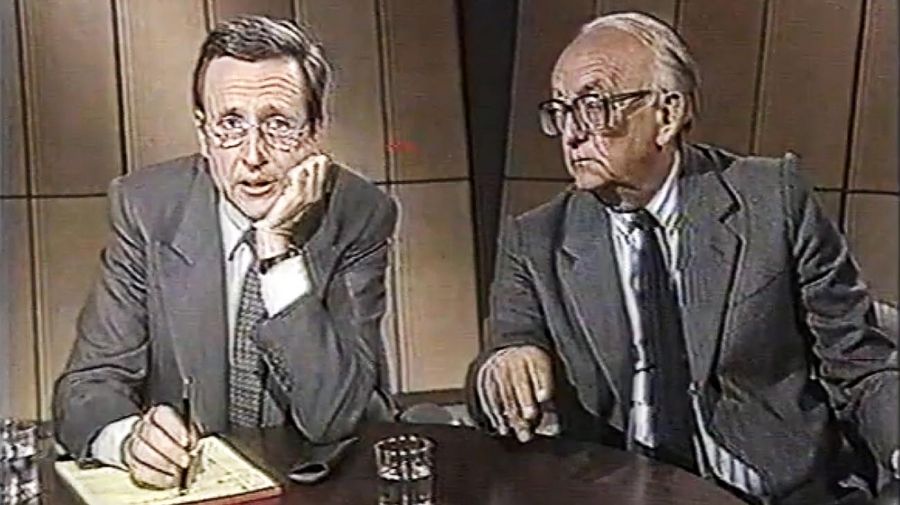“The hearing is a mystery, It’s like throwing a bottle into the sea. That way it comes back, that way it doesn’t“This is how he sometimes referred to his career on television Mariano Grondonawhose style and depth marked an era in the journalism Argentinian. Strongly criticized and admired by both, the journalist and writer who this Wednesday meets 90 years He has been retired for a long time due to his health problems.
At other times, where political leaders relied on a few figures and analysts to debate and communicate their messages, one of those analysts was Grondona. In duo with bernard neustadt they made New time, with thirty years of permanence on the screen -interruptions through-. At the end of the eighties the differences surfaced and Mariano left the program to start his own in direct competition: Key Hour.
Mariano Grondona, six years after his stroke with Mirtha and friends
“In the structure of the program, Bernardo was the journalist and I was the intellectual. The program was made by him, thought by him and invited by him. And in the end, I made my reflections “, he recalled some time ago in an interview with Leaders Today. However, he explained that over the years “roles began to reverse“.
Mariano Grondona: anti-peronism and approach to journalism
Lawyer, sociologist, essayist, political columnist and television host, Mariano Carlos Grondona was born in Buenos Aires on October 19, 1932. As a professor, he has taught Political Law and Theory of the State at the UBA Law School and taught special courses in harvard and at Cema University.
He lived with his family in a “petit hotel” in Vicente López but was raised by his grandparents in the Recoleta neighborhood of Buenos Aires after his father’s death. As a teenager he entered a seminary because he wanted to be a priest, but his desire “did not last long,” as he acknowledged. “Had to get up at 6 in the morning And that didn’t work for me.”
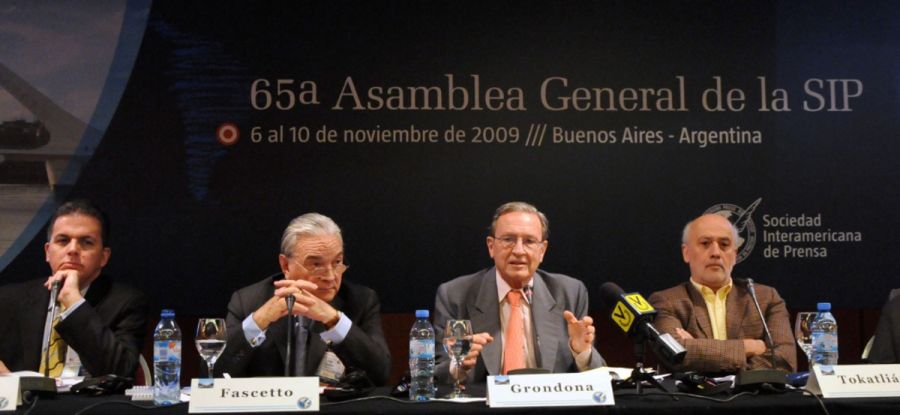
At the age of 20, he became one of the leaders of a university group in opposition to the Peronist government. In an article for infobaejournalist and former guerrilla fighter Aldo Duzdevich pointed out that Grondona was a member of the anti-Peronist Civil Commandos (CC) and that he took part in actions of sabotage and attacks, including the Bombardment of the Plaza de Mayo (which left more than 308 dead and more than 800 injured).
He began his studies as a lawyer because, according to his words, “I didn’t know what to do” and “he had nothing concrete.” One of his first contacts with journalism was with the daily The nation, where he developed as a political columnist and editor of international news at different times. He continued to work in that medium until a few years ago, where his latest columns can be read.
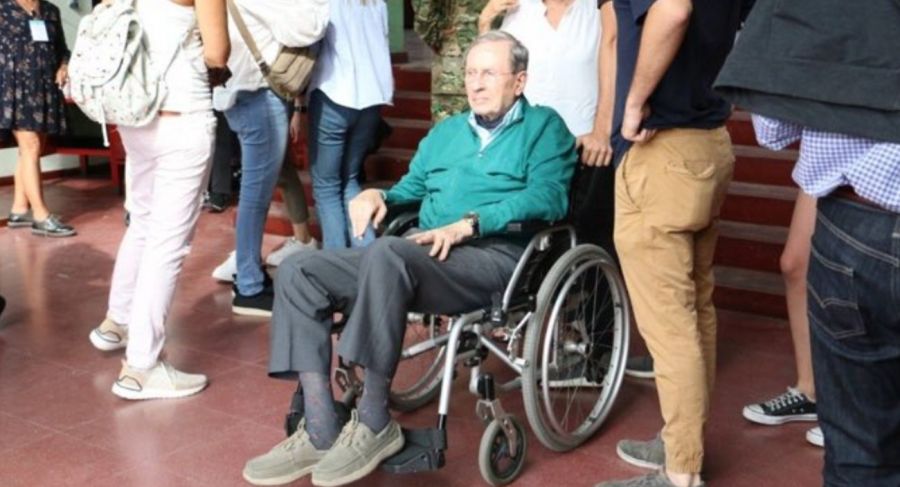
His thought
He also worked in magazines like Confirmed, All, Front pagethe newspaper The Opinion and the weekly Political Letter. Meanwhile, he also directed the Latin American magazine Vision. In these publications he was in favor of the de facto governments from his intellectualism liberal-conservative. Later, when Neustadt accompanied the Menemism and his politicsGrondona would become a staunch critic but he would soften his position.
Closer to the start of the new millennium, too he was characterized by his self-criticism about his vision and support for various aspects of dictatorships, stressing the importance of constitutional values. He has even said that Argentina “paid a terrible price” for having interrupted democratic processes.
Less militancy and more respect for the values of journalism
In fact, one of his last public appearances was in the 2019 presidential electionwhere he was seen in a wheelchair with his family to cast his vote.
Grondona first retired and then he had a cerebrovascular accident (CVA) in 2012. As his recovery progressed, he expressed in an interview to PROFILE: “One is humbled by all of this. What made me most proud until that moment was my brain. And it was just what failed“.
“You ask yourself: ‘Why me?’ But in reality later you end up thinking of a second, less arrogant idea –because some macanas I did–, and that is: ‘Why not me’”, he stated.
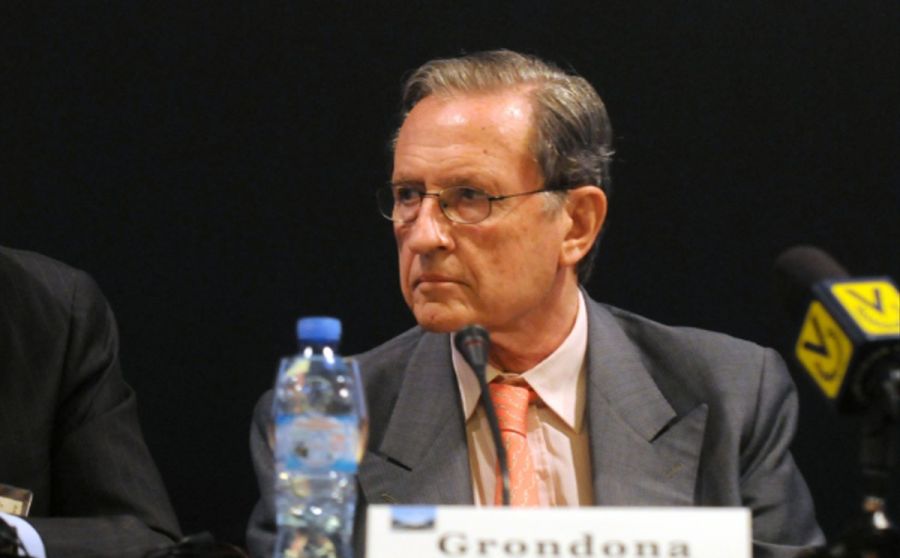
“New Time” and “Key Hour”
“With Bernardo we were like oil and water but we’ve been good friends“, Grondona recalled in the aforementioned report. “He was a sudden, he fished things out of the air and was reflective,” he commented on his former partner – who died in 2008 – in one of the cycles that revolutionized national journalism.
On the other hand, he stated that the separation between the two journalists arose when Grondona began to do Key Hour. “For a while he wasn’t very friendly, he ended up accepting it but at first I didn’t think I could do my own show.”
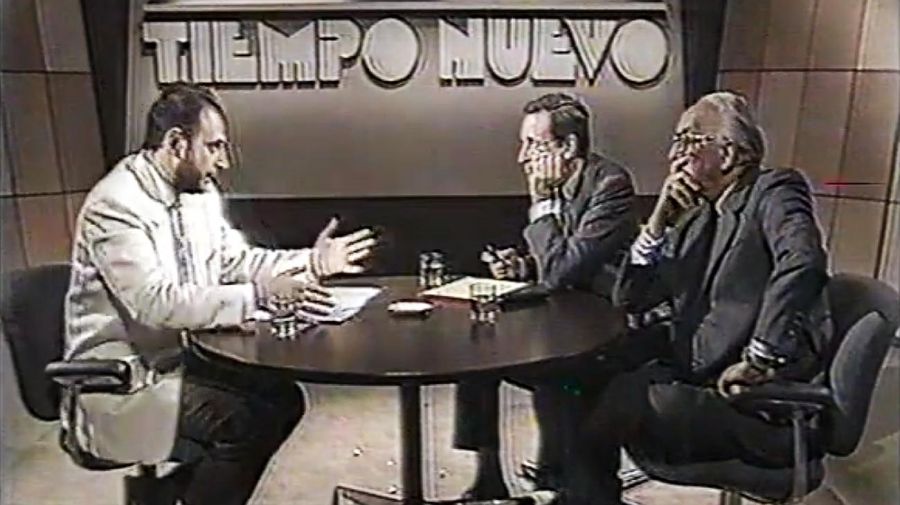
In the program he conducted interviews that had an impact on public opinion and the government. Such were the reports to the ex-military Adolfo Scilingowho acknowledged having participated in the “flights of death”, and when the then deputy Martha Mesa revealed having had an extramarital child with him former president Carlos Menem.
“The four sins of journalism”, according to Pope Francis
Other programs and books published by Mariano Grondona
In his extensive career, Grondona also had a vast passage through the radio medium. The key of the day Y aroundby Continental Radio, The Keys of the Day Y Thinking with Mariano Grondona by Radio La Red, were some of them.
On television, he also led Classes with Mariano Grondona Y The Key by Mariano Grondona. Among the books he published are The thinkers of freedom, Under the rule of moral ideas, The corruption, Argentina as a vocation Y The cultural conditions of economic development.
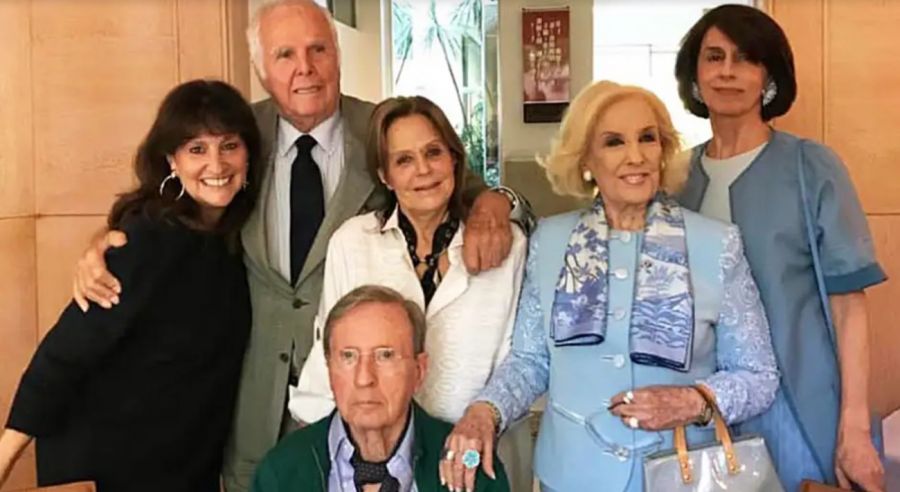
About this last book, the journalist himself defined it as “his work that marked him the most.” In this sense, he indicated that the idea of culture is linked to valuesdevelopment is “a system of values that is incorporated into society” and that Argentina “should continue promoting.”
Married to elena lynch, father of three children and grandfather of 9 grandchildren, is also a member of the National Academy of Journalism, occupying the Juan Santos Valmaggia chair. Among the authors who most influenced him in his career, he always pondered the philosopher Juan Ortega y Gasset: “He knew how to write. Argentine is dry, Spanish is more flowery and Ortega came to me that way. In my own way, I tried to imitate it“.
You may also like
Mariano Grondona: chiaroscuro of the intellectual who marked an era of journalism

